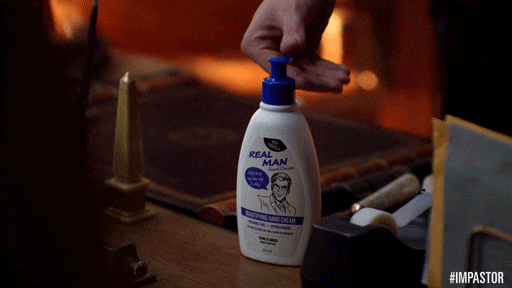Sex
Lube 101: A Beginner's Guide to Choosing the Best Lube for You
By Lilith Bealove

Before I started using sexual lubricant, I thought that people only used it when they couldn’t get ‘wet’ on their own. In most of the erotica and porn I'd seen, women are dripping with fluids when they get turned on.
But wetness is not a definitive indicator of sexual arousal. As Dr. Laurie Mintz has pointed out, "[being] wet doesn’t mean you’re ready for penetrative sex. Not being wet doesn’t mean you aren’t turned on. Vaginal lubrication is more nuanced than the media portrays it to be."
Lube makes everything wetter and better. By reducing any friction, it enhances the pleasure potential wherever you apply it. Whether used with a partner, your fave vibrator, or on your own, it's a must-have for any toy box.

Before you buy, there are some things to consider to determine which option is best for your body and needs. When purchasing lube, you should always check the ingredients to ensure that it doesn’t contain anything you are allergic to. You should also steer clear of the following ingredients:
Petroleum
Petroleum, or petroleum-based ingredients, coat the skin and can trap bacteria that cause infections. Also, don't pair it with latex condoms as it wears latex down and increases the chance of them breaking.
Parabens
Parabens mimic estrogen and put women at a higher risk for breast and ovarian cancer. They can also be detected in urine, breast milk, and blood, which means if you’re breastfeeding or donating blood, it can be passed from you to the baby or blood receiver.
Phenoxyethanol
Phenoxyethanol can cause skin irritation. But that’s the least of your worries with Phenoxyethanol. This ingredient is linked with immune suppression and damage to the reproductive system.
Propylene glycol
Propylene glycol is often combined with injected medicines because the body absorbs it so easily. But this agent doesn’t discriminate against what it takes into your bloodstream and has been linked with increased STI transmission.
Glycerin
Glycerin is a common ingredient found in skincare products. But people with certain skin conditions may find it irritating because it can dehydrate the skin. It's also why you may find your otherwise allergen-free water-based lube irritating. Glycerin is also byproduct of sugar and can increase your chances of getting a yeast infection.
Now that you know what to watch out for, it's time to look at the main options out there.
1. Water
Water-based lubes are the most common and popular choice. The main ingredient in this type is, you guessed it, water.
Pros: Easy to clean off and doesn’t stain materials. And it plays nicely with condoms and any kind of toy including silicone sex toys.
Cons: It has to be reapplied often and it cannot be used in the shower or for water play.
2. Silicone
Pros: Longer lasting so you don't have to re-apply as often. Great for shower play and anal sex. Safe to use with any condoms.
Cons: Should not be paired with silicone sex toys because it can break down the material of the toy. It can also stain materials like bed sheets and clothing.
3. Hybrid
The best of both worlds. It isn’t as tacky as silicone lube but doesn’t evaporate as quickly as water-based lubricants.
Pros: This has all the best qualities of both lubricants. It doesn’t stain fabrics as easily, it washes off fairly well, it doesn’t have to be reapplied often, and it is easy on sensitive skin.
Cons: Can't be used with silicone sex toys.
4. Oil
This option is great for people who find they are sensitive to the other types I have listed.
Pros: Super long-lasting, gentle on the skin, and can even be used for body massage.
Cons: Hard to wash off, can trap bacteria and increase risk of infection, and cannot be used with latex condoms.
5. Flavored
Flavored lubes are meant to be enjoyed with your mouth. If you find one to your taste, they can make for great foreplay (licking it off each other’s bodies) and add fun flavors to oral sex.
Pros: Great for spicing up foreplay and oral sex.
Cons: They're chock full of sugars. So we don't recommend using them vaginally unless you want a yeast infection.
6. Organic
Organic lubes are a fantastic option for people who are conscious of their carbon footprint and are sensitive to synthetic materials.
Pro: Environmentally conscious, and with great moisturizing qualities.
Cons: Tend to evaporate quickly and need to be reapplied often. And unfortunately, thanks to their great moisturizing feature, they can be sold as just ‘moisturizers’ and under the radar of the FDA. As a result, they can also have ingredients in them that should not be used internally. Always read the labels.

Bottom Line(s):
You can use lube to enhance solo sessions, hand and finger play, make sex with a condom feel better, and make barebacking feel a hell of a lot better.
If you are using it internally, start by squeezing some lube into your hand and working it over the object that is going into an orifice.
If you are using it with a condom, be sure that it is a type that can be used without risking breakage. Pro-tip: put a small dollop on the inside of the condom to enhance the feeling for the wearer as well.
Above all, there is no shame in using lube. It only has the potential to enhance your sex life from here on out. Glide on, bbs!

Stay in the loop, bbOur top stories delivered to your inbox weekly
